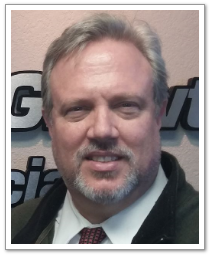Two local men were among 36 defendants in 13 federal districts across the United States that were charged for more than $1.2 billion in alleged fraudulent telemedicine, cardiovascular and cancer genetic testing, and durable medical equipment (DME) schemes, according to a Department of Justice press release on July 20.
Telemedicine schemes account for more than $1 billion of the total alleged intended losses associated with the enforcement action.
In connection with this national effort, the U.S. Attorney’s Office for the Eastern District of Texas charged 21 individuals, including doctors, laboratory executives, hospital executives, and marketers for their involvement in health care kickback and money laundering conspiracies. They are defendants in a False Claims Act lawsuit.
William Todd Hickman, 59, of Lumberton, was indicted for conspiracy to commit illegal remunerations in violation of the Anti-Kickback Statute.
According to the indictment, Hickman started Ascend Professional Consulting, Inc. on Aug. 21, 2015, and it later it operated as Ascend Professional Management (APM), Inc. on Oct. 9, 2015. Both companies are currently inactive. APM was also the managing member of Ascend MSO of Texas, LLC (formed in Oct. 14, 2015), Benefit Consulting, LLC (formed on April 28, 2016), Geminorium MG, LLC and Hercules MG, LLC (both formed on July 26, 2016). Hickman was listed as the manager of Eridanus MG, LLC, formed on June 28, 2016.
If convicted, Hickman would face up to 5 years in prison, a fine not exceed $250,000 fine or not to exceed two times the gross gain to the defendant or not to exceed two times the loss to the victim, or both imprisonment and fine with a term of supervised release no more than 3 years.
The Anti-Kickback Statute prohibits offering, paying, soliciting, or receiving remuneration to induce referrals of items or services covered by Medicare, Medicaid, and other federal health care programs.
The defendants were charged for their roles in a conspiracy through which physicians were incentivized to make referrals to critical access hospitals and an affiliated lab in exchange for kickbacks which were disguised as investment returns; and in which marketers were incentivized to order, arrange for, or recommend the ordering of services from critical access hospitals and an affiliated lab in violation of the Anti-Kickback Statute.
Additionally, 33 doctors and health care executives have agreed to pay more than $32 million in order to resolve False Claims Act allegations for their involvement in the scheme. The criminal and civil cases allege that the defendants unlawfully enriched themselves by paying and receiving illegal kickbacks in exchange for laboratory referrals.
Two Texas critical access hospitals, Little River Healthcare (LRH) based in Rockdale, and Stamford Memorial Hospital based in Stamford, partnered with Boston Heart Diagnostics (BHD), a clinical laboratory based in Framingham, Mass., that specialized in blood testing.
For a fee, BHD allowed the hospitals to bill their blood tests to insurers as purported hospital outpatient services, with the hospitals charging insurers a much higher rate than BHD could receive as a clinical laboratory. The hospitals utilized a network of marketers who in turn operated management services organizations (MSOs) that offered investment opportunities to physicians throughout the State of Texas. In reality, the MSOs were simply a means to facilitate payments to physicians in return for the physicians’ laboratory referrals.
Pursuant to the alleged kickback scheme, the hospitals paid a portion of their laboratory revenues to marketers, who in turn kicked back a portion of those funds to the referring physicians who ordered BHD tests from the hospitals or from BHD directly. BHD executives and sales force personnel leveraged the MSO kickbacks to gain and increase referrals and, in turn, to increase their revenues, bonuses, and commissions.
Between July 1, 2015, and Jan. 9, 2018, at least $11,256,241 in illegal kickback payments were exchanged by the defendants in furtherance of the conspiracy.
Stephen Kash, 48, of Winnie, was indicted for conspiracy to commit money laundering, for his reported involvement in the money laundering conspiracy. He allegedly had kickback proceeds laundered on his behalf and, at various times, obtained proceeds from the kickback conspiracy.
If convicted, Kash could face up to 20 years in prison, or up to a $500,000 fine or twice the value of the monetary instrument or funds involved, or both imprisonment and fine.
Any patients who believe that they have been contacted as part of a fraudulent telemedicine, clinical laboratory, or DME scheme should call to report this conduct to HHS-OIG at 1-800-HHS-TIPS.



